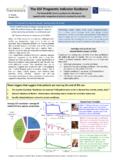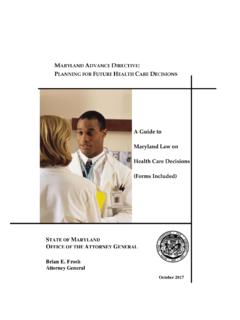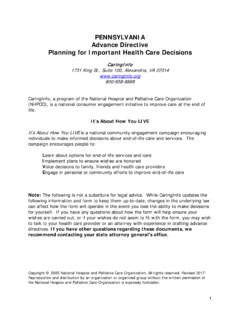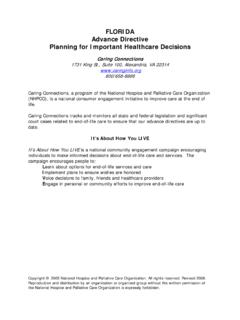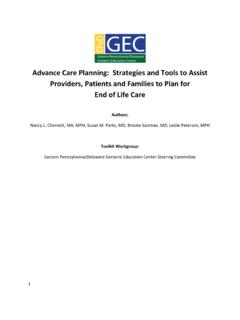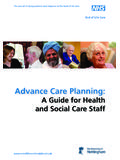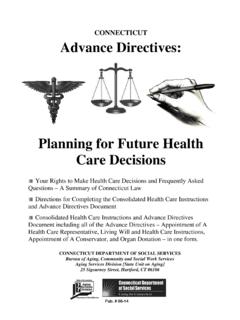Transcription of Gold Standards Framework and the Supportive Care Pathway ...
1 T ACP July 2013 V21 2013 Used under licence by the Gold Standard Framework Centre CIC Gold Standards Framework and the Supportive care Pathway Draft 7 Thinking Ahead GSF Advance care Planning Discussion We wish to be able to provide the best care possible for all patients and their families, but to do this we need to know more about what is important to them and what are their needs and preferences for the future. The aim of any discussion about thinking ahead, often called an Advance care Planning Discussion, is to develop a better understanding and recording of peoples priorities, needs and preferences and those of their families and carers. This should support planning and provision of care , and enable better planning ahead to best meet these needs.
2 This philosophy of hoping for the best but preparing for the worst enables a more proactive approach, and ensures that it is more likely that the right thing happens at the right time. This example of an Advance Statement should be used as a guide, to record what the patient DOES WISH to happen, to inform planning of care . In line with the Mental Capacity Act (2005), this is different from a legally binding refusal of specific treatments, or what a patient DOES NOT wish to happen, which is called an Advance Decision (to refuse treatment) (ADRT). Ideally an Advance care Plan should be discussed to inform future care at an early stage. Due to the sensitivity of some of these issues, some may not wish to answer them all, or may quite rightly wish to review and reconsider their decisions later. This is a dynamic planning document to be adapted and reviewed as needed and is in addition to Advanced Directives, Do Not Resuscitate plan, or other legal document.
3 Name: Address: DOB: Hosp / NHS no: Date completed: GP Details Hospital contact: Family members involved in Advance care Planning discussions: Name: Contact tel: Name of healthcare professional involved in Advance care Planning discussions: Role: Contact tel: Patient signature Date Next of kin / carer signature (if present) Date Healthcare professional signature Date Review date: T ACP July 2013 V21 2013 Used under licence by the Gold Standard Framework Centre CIC Gold Standards Framework and the Supportive care Pathway Draft 7 Thinking Ahead GSF Advance care Planning Discussion Thinking 1. At this time in your life what is it that makes you happy or you feel is important to you?
4 2. What elements of care are important to you and what would you like to happen in future? 3. What would you NOT want to happen? Is there anything that you worry about or fear happening? 4. Do you have a Legal Advance Decision to Refuse Treatment document? (This is in keeping with the Mental Capacity Act (2005) and enables people to make decisions that will be useful if at some future stage they can no longer express their views themselves) No / Yes If yes please give details (eg who has a copy?) 5. Proxy / next of kin Who else would you like to be involved if it ever becomes difficult for you to make decisions or if there was an emergency? Do they have official Lasting Power of Attorney (LPoA)? Contact 1 .. LPoA Y / N Contact 2 .. LPoA Y / N 6. Preferred place of care If your condition deteriorates where would you most like to be cared for? 1st choice 2nd choice Comments 7.
5 Do you have any special requests, preferences, or other comments? 8. Are there any comments or additions from other people you are close to? (Please name) NB See also any separate DNACPR/AND or ADRT documents.



